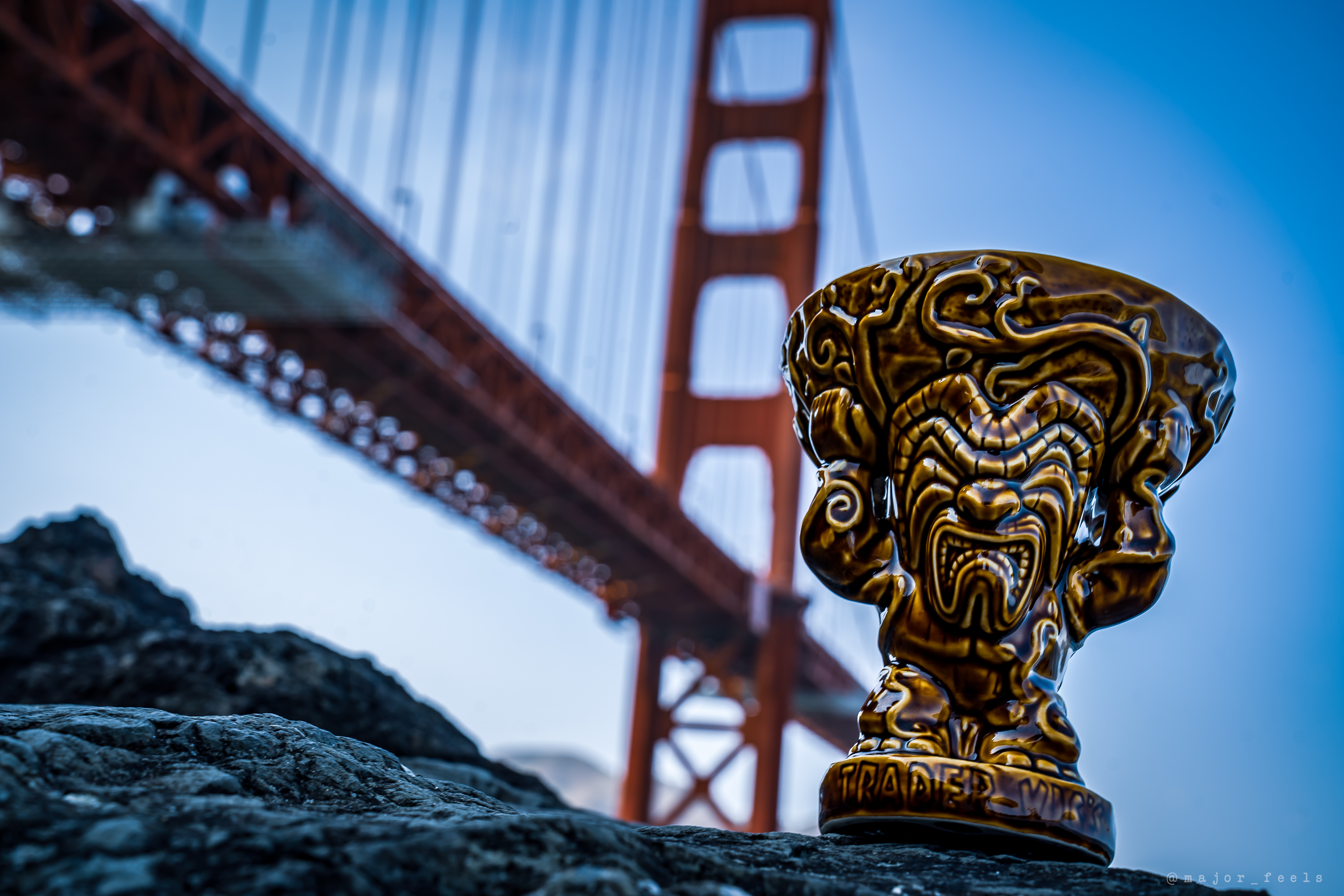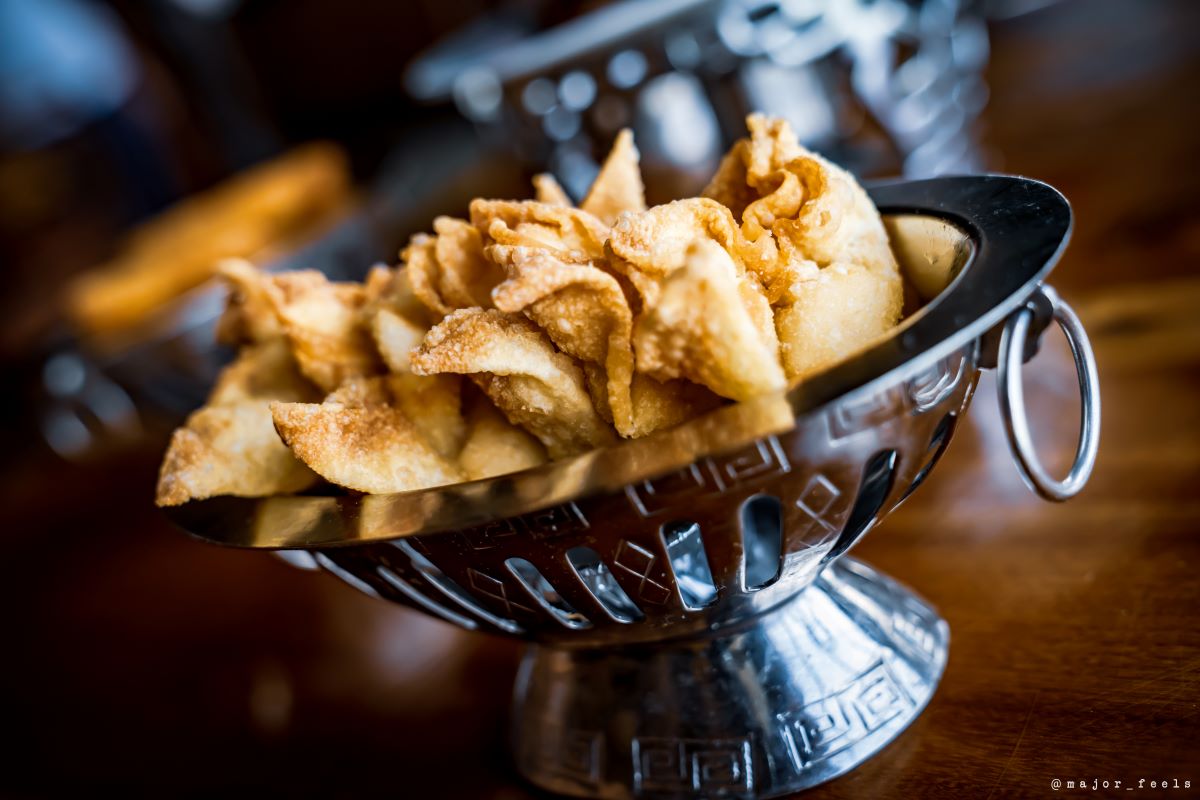Sponsored content. Us Weekly receives compensation for this article as well as for purchases made when you click on a link and buy something below.
Have you ever heard of Trader Vic’s?
One of two things just happened. Either you had a vivid memory of a unique meal and a delicious cocktail in a sepia-toned setting — or you just went, “Huh?”
Trader Vic’s is an insider sort of thing. If you know, you know.
For those that do know, Trader Vic’s is one of the most iconic restaurant establishments of the last hundred years, embodying the island experience and practically inventing the genre of fusion cooking. For those that don’t know, get ready to have your mind blown.
Today, we’re going to break down the history of one of the most influential culinary brands from its humble beginnings to global domination. This is the story of Trader Vic’s.
From 1934 Into the Twenty-First Century
If you were to create a list of American restaurant brands that have existed since the 1930s, that list would be fairly short.
The restaurant and nightlife businesses are some of the most competitive industries to survive in, let alone thrive. Happily, Trader Vic’s has managed to do both.
Northern Californian Roots
The original Trader Vic’s opened in 1934 under a different name: Hinky Dinks. Sitting on a corner on San Pablo Avenue in Oakland, California, the restaurant was little more than a beachy shack, serving up rum-based cocktails and quickly becoming a local favorite.
Vic Bergeron was the man behind the bar, the owner and operator of Hinky Dinks. His passion for travel and learning from expert cooks, cocktail enthusiasts, and rum drinkers is the reason why we have the Trader Vic’s brand today.
During the ‘30s, Vic traveled extensively and brought home traditions and experiences that shifted the atmosphere at Hinky Dinks. Before long, it became Trader Vic’s.
As one of the first of its kind, the restaurant’s popularity soared in the ‘40s and ‘50s, leading to new locations opening across the country. Trader Vic’s also gained a reputation as an innovator of fusion foods, mixing different flavors to create something entirely new — a rare approach back in the mid-century.
Vic was all about cultivating a unique and enjoyable dining experience.
In one of his first bartending guides, he dedicated the book to “those merry souls who make drinking a pleasure; who achieve contentedness long before capacity; and who, whenever they drink, prove able to carry it, enjoy it and remain ladies and gentlemen.”
We can’t think of a better way to describe the legend himself.
Trader Vic created a place to truly enjoy life — and have a handcrafted, delicious cocktail by your side while you do it.
A Passion for Cross-Cultural Connection
Trader Vic’s was one of the first restaurant brands to prioritize developing its atmosphere. For Vic, the dining experience was just as important as serving high-quality food and drinks.
Vic’s greatest ambition was to create a place where people could come together and share in his passion for travel and cultural connection. Without tools like the internet, regular people relied on curated experiences like Trader Vic’s to learn more about the most remote corners of the world.
Throughout his travels to Papua New Guinea, China, Tahiti, and beyond, Vic made many friends and allies. He brought gifts home from his travels and soon amassed an impressive collection which he used to outfit his restaurants.
Today, the brand has letters from indigenous communities, authenticating and authorizing Vic’s collection. The Trader Vic’s organization prides itself on working collaboratively with the cultures and people Vic visited, educating its customers, and supporting communities worldwide.
An International Enterprise
Even though the Trader Vic’s of today may look and feel a little different than how it did in the ‘40s, the Trader Vic’s franchise isn’t slowing down any time soon. This restaurant has locations all over the world, bringing its unique aesthetic from California, Munich, London, Tokyo, and Dubai.
The brand has totally embraced its Instagrammable interiors and maintains its commitment to serving vibrant, mouthwatering recipes — some of which were dreamed up by Old Vic himself.
Trader Vic’s continues to both survive and thrive with a brand new location in San Jose’s International Airport, a pop-up in Washington D.C., a pop-up in Denver later this year, and its first Beach Club set to open in October on the Palm in Dubai.
How Travel Has Shaped Trader Vic’s
Travel and cultural appreciation are at the very heart of Trader Vic’s brand, informing every major decision the business has made.
One Trip To Cuba Changed Everything
For example, the name and experience change from Hinky Dinks to Trader Vic’s. This came after a transformative trip to Cuba.
There, Trader Vic learned from expert rum cocktail artists about what makes a delicious drink and how to appreciate the finer qualities of an aged rum. Inspired by his experiences there, Trader Vic committed the future of his restaurants to increasing the cultural awareness of the traditions, people, and cuisines he experienced on the road.
Friendship and Exchange
Trader Vic’s travels have led to long-lasting relationships between the Trader Vic’s brand and indigenous cultures across the world, though the company is especially committed to the people of Tonga, Papua New Guinea, Indonesia, and the entire Pacific Islander community.
Each Trader Vic’s location includes authentic statues, masks, and collectibles from around the globe. They buy the Tapa Cloth they use as wallpaper from the Mataitonga Family in Nuku’alofa, Tonga — which not only supports them, but their micro-economy as well.
Cross-cultural appreciation and education is the cornerstone of Trader Vic’s, as they continue to learn from and be inspired by communities all around the world.
Partnership With People of Rapa Nui
Trader Vic’s dedication to connection informs so many of its decisions, including its commitment to supporting the local community of Rapa Nui. This community produces the Moai statues that have informed and inspired so much of the decor at Trader Vic’s.
Trader Vic’s partners with The Fraternal Order of Moai Foundation and The Easter Island Foundation, two non-profit organizations run locally from the island that are focused on uplifting indigenous people, preserving traditional practices, and celebrating Rapa Nui culture.
After the Hunga Tonga–Hunga Ha’apai volcanic eruption in December of 2021, Trader Vic’s organized a global fundraiser with people from around the world, supporting those affected by the eruption and subsequent tsunami.
Plenty of restaurants are pretty shallow when it comes to their connection with the places they claim to celebrate. We appreciate Trader Vic’s commitment to do better.
To learn more about Trader Vic’s fundraising efforts, visit its website today!
A Classic Brand With a Lasting Legacy
Even if this was your first time hearing about Trader Vic’s, we’re willing to bet that you’ve at least heard of its creations — you just might not have realized it. This legacy brand has been producing globally famous meals and cocktails since the early ‘40s, quickly inspiring imitation from competitors.
Inventing the Mai Tai, Crab Rangoon, and More
Perhaps the most famous example of Trader Vic’s iconic contributions to culinary history is the Mai Tai.
This sunny vacation cocktail was created by Trader Vic himself — Vic Bergeron sure knew what he was doing, behind the bar.
Legend has it that Vic had a friend visiting the original Trader Vic’s location all the way back in 1944, and Vic wanted to make her something special. He grabbed a seventeen-year-old bottle of aged Jamaican rum and added a squeeze of lime, a dash of rock candy syrup, a splash of orange curacao, and some French Orgeat. Then, he poured the whole thing over a glass of crushed ice.
The result was so great that his friend exclaimed, “It’s Mai Tai Roa Ae!” (That’s Tahitian for, “Out of this world, the best!”)
Quickly, the Mai Tai became a San Francisco hit, then spread across the world. There are many recipes and variations available today (many of which are a little sweeter), but we happen to think Trader Vic had it right the first time.
Trader Vic’s is also responsible for creating the crab rangoon, which you can order from just about every Chinese American restaurant these days.
As you can see, taking inspiration from other cultures and melding them with the traditions of San Francisco and Northern California proved to be a successful formula for Trader Vic’s.
Today, the brand is still coming up with new cocktails and innovating in the kitchen.
Evolving Into a Lifestyle Brand
Trader Vic’s is also building out its online shop, giving its cult following the chance to bring some of Trader Vic’s home with them.
Their site is stacked with custom mugs, bartending materials, handcrafted teak goods, hand-carved serving spoons, and apparel inspired by its vintage logo and aesthetic.
If there’s a home goods lover in your life, check out Trader Vic’s online store today!
If homemade Mai Tais are more your speed, you have two choices. Vic’s recipes are all available in bartending guide books, or you can get the classic recipe canned and shipped directly to you. How cool is that?
Last Thoughts on the Inimitable Trader Vic’s
For a brand to survive nearly ninety years, evolution is the name of the game. From humble beginnings to far-reaching travels to becoming a household name, Trader Vic’s is just getting started.
Check out Trader Vic’s website to learn more about this iconic restaurant and find a location near you.
Browse fashion, beauty and health products. Also, check out our gift guides.
This post is brought to you by Us Weekly’s Shop With Us team. The Shop With Us team aims to highlight products and services our readers might find interesting and useful, such as wedding-guest outfits, purses, plus-size swimsuits, women’s sneakers, bridal shapewear, and perfect gift ideas for everyone in your life. Product and service selection, however, is in no way intended to constitute an endorsement by either Us Weekly or of any celebrity mentioned in the post.
The Shop With Us team may receive products free of charge from manufacturers to test. In addition, Us Weekly receives compensation from the manufacturer of the products we write about when you click on a link and then purchase the product featured in an article. This does not drive our decision as to whether or not a product or service is featured or recommended. Shop With Us operates independently from advertising sales team. We welcome your feedback at [email protected]. Happy shopping!
For access to all our exclusive celebrity videos and interviews – Subscribe on YouTube!
Source: Read Full Article

